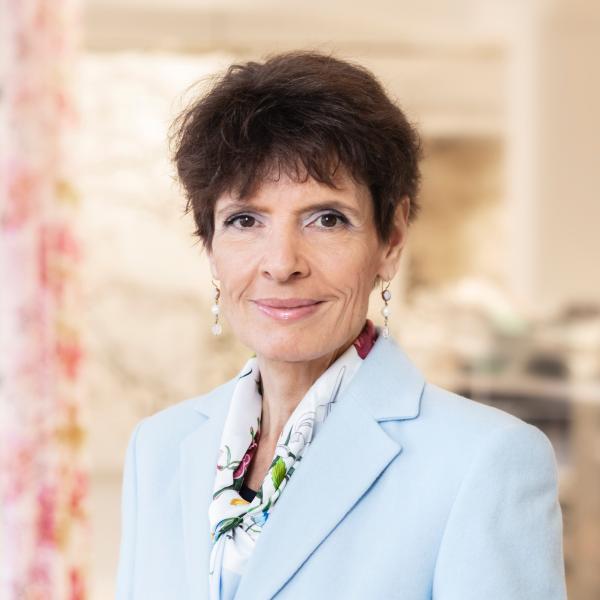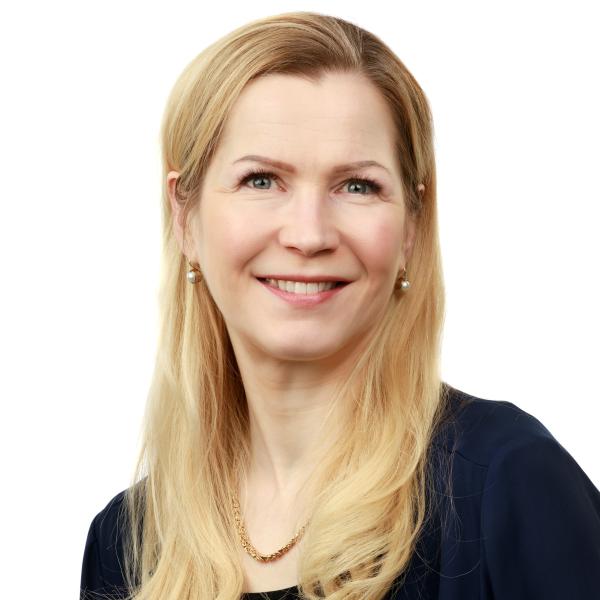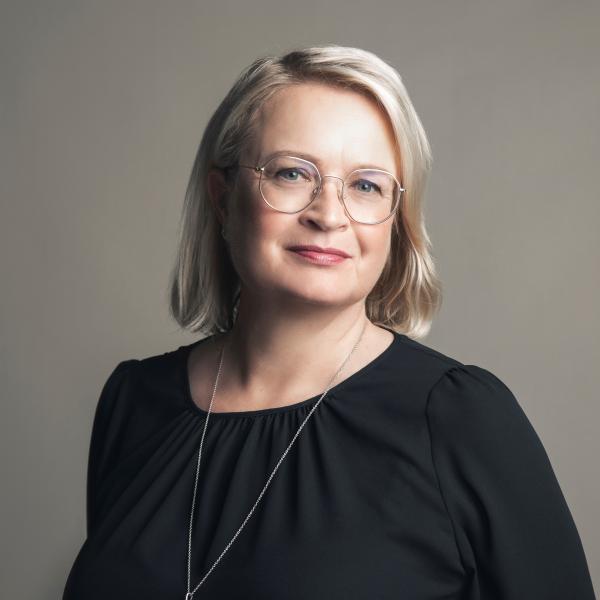

Advisory board
The Digital Economy research platform of the University of Vaasa receives support for the development of research and operations from business life influencers. We asked four digital industry leaders on the Advisory Board what they thought about their dialogue with the university.
Anne Berner: “Dialogue between the corporate world and the university is much needed”
Anne Berner, an entrepreneur and board member of several companies, joined the Digital Economy research platform’s Advisory Board because she wanted to make her own expertise and experience available to the university.
– I think it’s a good policy. University boards include representatives from the business life, but sector-specific cooperation forums are not so common.
Berner feels it is important that the communication between the business life and the university is as open as possible.
–The academic world gains perspective from companies that depend on research and its application. This is probably also the greatest contribution that the Advisory Board can give to the university.
According to Berner, it is essential that representatives from the business life and the university can discuss not only science but also the content of teaching.
– Universities train future experts and leaders for the corporate world. It is very important that these up-coming leaders have the right skills to face the ever-changing working life.
Berner feels that the Advisory Board is an excellent place to observe how research on digitalisation and its application in practice is developing in Finland and also internationally.
– The forum is very interesting and productive. We get to learn about the current ideas on the development of the digital operating environments at the university and how research in various sectors is linked to the theme. It is so important to gain perspective to the future.
Anne Berner says that the Advisory Board’s discussions have been fruitful.
– It has been intriguing to learn how the other board members and their companies view the effects of digitalisation on their business. Digitalisation affects all sectors and also all of our daily lives. This is why it is so important that we understand the direction and impact of development in the choices and decisions made by both companies and individuals.
- Anne Berner is a long-term entrepreneur best known for her family business, Vallila Interior. She currently operates on the boards of several companies, including the Swedish SEB bank. Berner also served as a Member of Parliament and Minister of Transport and Communications from 2015 to 2019.
Sari Heinonen: “Research topics should focus on issues that are relevant for companies”
Sari Heinonen, CEO of OP Life Insurance, says that the discussions between the representatives of the corporate world and the university often generate interesting perspectives that are new for all parties. This has also been the case in the meetings of the Digital Economy research platform’s Advisory Group.
– Obviously, the focus of science should never be solely on what is good for business. However, our role is to bring to attention issues that are important to companies. For example, research topics that are relevant for companies that we would like to learn more about often come up in discussions.
In a financial group such as OP, electronic services have long been an integral part of the business. According to Heinonen, the word ‘digitalisation’ has practically disappeared from everyday language. However, she stresses that keeping a close eye on technological developments and making the most of them is very important.
– In business, development work is carried out within a relatively short period of time, whereas in academic research, the focus is often further down the line. They are already reviewing the next wave of digitalisation and what will be possible in the future.
– That is why getting acquainted with research on digitalisation is so fascinating; it allows us to peek into the future.
Data security is among the topics that have been discussed at Advisory Board meetings. As a representative of a financial group, Heinonen is also interested in research related to cryptocurrencies and other new payment methods.
– These phenomena are already present in our business, but as usual, science is one step ahead of us in new matters.
Heinonen feels it is good that the Advisory Board members come from very different backgrounds. This creates variety and different perspectives to the discussion.
– We also like to catch up with each other beyond the official agenda and learn what is new in each of our sectors.
- Sari Heinonen has a PhD in management and marketing from the University of Oulu. Prior to her current position, she was responsible for OP Group’s personal customer relationships and personal customer marketing, channels and digital sales. She has also previously worked for DNA and the University of Oulu.
Anni Ronkainen: “Tips from advisors for focusing research”
Anni Ronkainen, Chief Digital Officer at Kesko Corporation, is an alumna of the University of Vaasa. She has a Master’s Degree from the University of Vaasa in Economics and Business Administration. She is very happy that as a member of the Advisory Board she can provide her expertise and experience from the corporate world for the benefit of her alma mater.
– I hope that the views provided by the advisors make it easier, for example, to select research topics. The field of digitalisation is beyond extensive, and we have highlighted certain themes that are particularly topical for companies. For example, platform economy, which is essentially connected to digitalisation, and its impact on our business is a topic that all companies are currently focusing on. It is good that these things are being studied at the university, Ronkainen says.
At the Digital Economy research platform, various research topics are discussed from different perspectives of the digital economy. According to Ronkainen, it is good that the research topics have been grouped together into larger entities under various research programmes.
– Focusing and packaging research topics into larger entities also makes it easier to communicate them to stakeholders.
Ronkainen has found it fascinating to explore the perspectives of different disciplines on the innovations made possible by new technologies and their impact on business life and society at large. She herself is interested in digitalisation in general, and she finds it particularly interesting how technology, data and analytics can be harnessed for the benefit of companies and society.
– Our discussions are made particularly rewarding by the slightly different approaches that the corporate world and the research community have. Companies tend to be more results-oriented and often have fairly strict guidelines on what can and cannot be done. Professors and researchers, on the other hand, have a certain freedom to contemplate and focus their research areas.
- Before her career at Kesko, Anni Ronkainen worked as Google’s Country Manager for Finland and as the CEO of the advertising agency group McCann Helsinki. Tivi magazine selected Ronkainen as Digital Director of the Year 2020.
Corinna Schulze: “EU legislation also affects research”
Corinna Schulze, Director of EU Government Relations and Global Corporate Affairs at SAP, has been closely observing the EU’s decision-making and legislative process in Brussels for a long time. She brings to the Digital Economy research platform’s Advisory Group expertise and up-to-date information, especially on EU-level regulation and legal issues.
– I follow the European Commission’s proposals that affect the IT sector as well as the progress of legislative projects. Many of these things also impact universities. For example, data protection issues affect universities to a large extent and the legislation governing them is constantly being developed.
Schulze also points out that there are currently many issues related to digitality and regulation of the electronic environment being processed at various stages of the decision-making process in the EU. For example, the digital service regulation aims to create a safer digital environment for users and businesses alike by protecting our fundamental rights online. The goal of the digital market regulation, on the other hand, is to ensure a level playing field for all digital businesses, regardless of their size.
– There is also a lot of talk about the EU’s digital sovereignty and what it actually means in practice. In addition to companies, digital capacity building also affects schools and universities that are involved in training next generation digital skills. We need more exchange of ideas between various actors and must break away from the silos.
- Corinna Schulze has studied law at the University of Münster in Germany. She has spent the majority of her career in Brussels working for the European Commission and at export positions at IBM and has worked at her current position as director at SAP since 2014.



